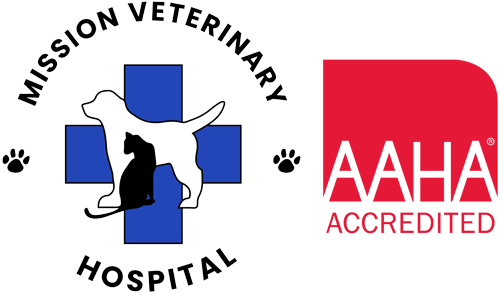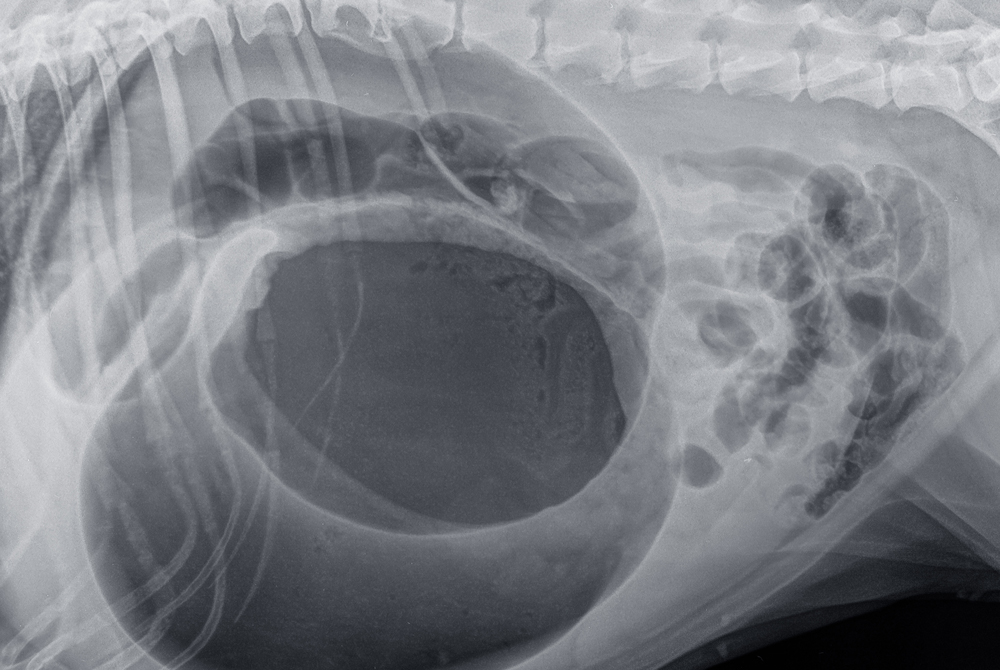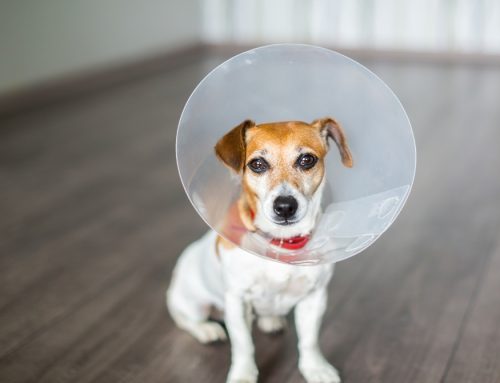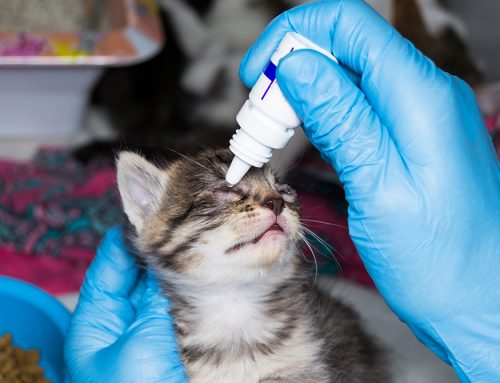Overview
Gastric Dilatation & Volvulus (GDV), commonly known as bloat, is a serious and potentially life-threatening condition that primarily affects deep-chested dog breeds. GDV occurs when the stomach fills with gas and then twists upon itself, leading to a rapid decline in health. Immediate veterinary intervention is critical to improve the chances of recovery.
Causes
Signs of GDV can develop suddenly and include:
- Abdominal Distension: The abdomen may appear bloated or swollen.
- Unproductive Vomiting: The dog may try to vomit but produce only foam or nothing.
- Restlessness: The dog may pace or appear uncomfortable.
- Rapid Breathing: Difficulty breathing or increased respiratory rate.
- Shock: Symptoms such as weak pulse, pale gums, or lethargy.
Diagnosis
Diagnosis is typically made through a combination of physical examination and imaging techniques. Your veterinarian may perform:
- Physical Examination: Palpation of the abdomen and assessment of vital signs.
- X-rays or Ultrasound: Imaging to confirm the presence of gas and stomach torsion.
Treatment
GDV is a medical emergency requiring immediate treatment, which may include:
- Emergency Stabilization: Intravenous fluids and medications to stabilize the dog and address shock.
- Surgical Intervention: Surgery is needed to untwist the stomach and, if necessary, to perform a gastropexy, which tacks the stomach to the abdominal wall to prevent recurrence.
- Post-Operative Care: Monitoring and supportive care to ensure recovery and manage any complications.
Prevention
While GDV can be unpredictable, some preventive measures may help reduce the risk:
- Feed Smaller Meals: Offer several small meals throughout the day rather than one large meal.
- Slow Feeding: Use slow-feeder bowls or food dispensers to prevent rapid eating.
- Avoid Post-Meal Exercise: Restrict vigorous activity for at least an hour after eating.
- Consider Gastropexy: Discuss with your veterinarian if preventive surgery might be appropriate for high-risk breeds.
When to Seek Help
If you notice any signs of GDV in your dog, seek immediate veterinary care. At Mission Veterinary Clinic, we are available for urgent care 7 days a week from 9 am to 11 pm. As a walk-in only facility, we do not schedule appointments. Our location is 16915 San Fernando Mission Blvd, Granada Hills, CA 91344. For urgent concerns, please call us at 818-363-8143.
Conclusion
Gastric Dilatation & Volvulus is a critical condition that requires prompt attention. Knowing the signs and acting quickly can save your dog’s life. If you have any concerns about your dog’s health or GDV, don’t hesitate to seek emergency veterinary care.
For more information, visit our website at missionvet.com.










Leave A Comment